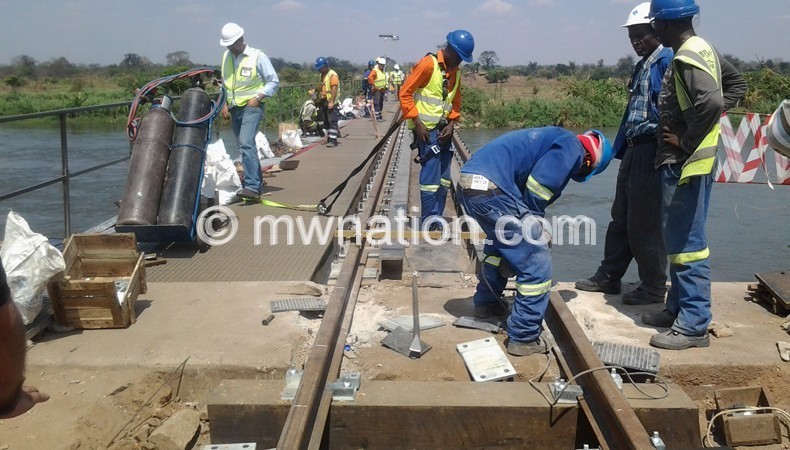Malawi needs more engineers
Malawi has one of the highest people to engineer ratio at 1 to 1 to 14 000 on the continent, a development experts say is not supportive to the country’s ambitions to be an industrialised nation.
Dean of Faculty of Engineering at the University of Malawi, the Polytechnic Theresa Mkandawire said this on Wednesday during a motivation talk for engineers at the Malawi University of Science and Technology (MUST).

The remarks came at a time demand for engineers and engineering technicians is heaviest now in government and parastatal organisations involved in building Malawi’s infrastructure, specifically, rural road networks, water and sewage projects, irrigation and hydro-power, rural electrification projects, and low-income housing, all related to improving the living standards of the rural poor.
“Malawi faces a lot of challenges that require a lot of engineers to find solutions to and develop Malawi. Those countries that are doing well have lower ratios of engineer to people they serve,” she said.
Mkandawire said, for instance, in the United Kingdom (UK), engineer-to-people ratio is at 1 to 300 while in Brazil, the ratio is 1 to 217.
“In the Sub-Sahara Africa, the average ratio for an engineer to people is 1 to 7000 while in Malawi, it is 1 to 14 000,” she said adding that Malawi could do better if it had a ratio of 1 to 300 as is the case for the UK.
In terms of the availability of scientists and engineers, according to Malawi Confederation of Chambers of Commerce and Industry (MCCCI) Malawi ranked above 100 out of 144 nations.
Mkandawire said that the development means Malawi’s engineers are under a lot of pressure to serve many people, a situation which could compromise the development of the country.
She said apart from the shortage of engineers, engineer capacity gaps also choke local contractors, hence, foreign firms—which have more engineering capacity— continue to dominate the construction sector.
According to the National Construction Industry Council of Malawi (NCIM) Fourth Quarter Performance Report, shows that out of 22 top firms, foreign firms constitute about 84 percent of the contractor market share while local firms scramble for the remaining 16 percent.
“It is true that people have often told us that we have less innovative engineers. But we are working towards addressing that problem. Now we want all student engineers to have hands-on-experience before they are finally awarded [degrees] in the field, in this case, we will be assured of what crop of engineers Malawi is breeding,” she said.
To that end, Mkandawire said that the Polytechnic has since structured all of its engineering programmes, and also introduced internship programmes for all its students and brought in so many modules as one way of encouraging problem solving.
In his remarks, head of engineering at MUST Edwin Khundi revealed plans to introduce more engineering programmess in agriculture and aerospace to ensure that Malawi has solutions to areas of engineering problems.
According to the World Bank, Malawi is one of the poorest countries in the world. n





